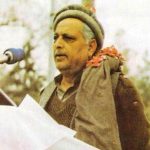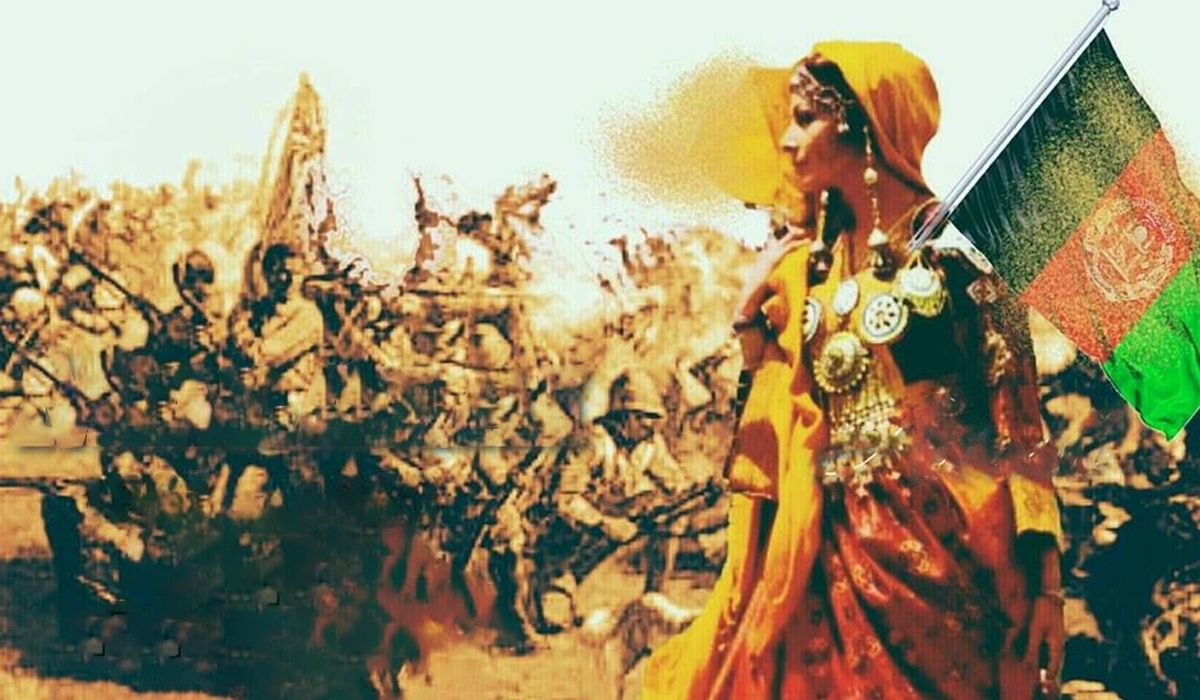While no one in in the western world might’ve heard of her, in Afghanstan Malalai (or Malala) is a legend always rememberd with proud and gratitude. Smaller facts in the story vary slightly, but although it is Ayub Khan who became known as the Victor of Maiwand, it is said that it was Malalai who actually saved the day.
Also known as Malalai Anaa (Malalai “the grandmother”), she born to a shepherd in Khig, a tiny village approximately 3 miles southwest of a town called Maiwand in Afghanistan’s Kandahar province.
In the late 1880s, British-Indian forces were attempting to colonize Afghanistan and incorporate the country with then British India and modern-day India and Pakistan. The main garrison of the British was located in Kandahar, which is the closest city to the town of Maiwand. The military of Afghanistan was represented by commander Ayub Khan (1857-1914), son of Afghan Emir Sher Ali Khan.
On July 27th, 1880, Malalai’s father and fiance (or husband, according to some sources) joined the Afghan army to fight off the British. According to some, this was also her wedding day. Malalai was there with many other Afghan women to serve the soldiers by taking care of the wounded and providing them water and weapons.
Eventually there came a point in the battle where the Afghan army, despite their superior numbers, started to lose morale and it seemed as though the British would be the victors. This is where Malalai plays a significant role and makes a move that changes the fate of her people.
Malalai “took off her veil,” took out the Afghan flag, and decided it was time her people gained needed motivation to keep them fighting until victory was on their side. So she shouted out:
“Young love! If you do not fall in the battle of Maiwand,
By God, someone is saving you as a symbol of shame!”
This reawakened the warrior-spirit in many of the Afghan fighters and ghazis and they redoubled their efforts.
At that moment one of the leading flag-bearers fell from a British bullet, and Malalai went forward and held up the flag (some versions say she used her veil as a flag), singing a landai (a short folk-song sung by Afghan women):
“With a drop of my sweetheart’s blood,
Shed in defense of the Motherland,
Will I put a beauty spot on my forehead,
Such as would put to shame the rose in the garden,”
These words led to the Afghans’ victory.
However, unfortunately, at this moment, Malalai herself was struck down and martyred by the British troops. At the time of her death, she was barely around 18. However, her words had spurred on her countrymen to victory.
After the battle, her efforts were acknowledged and appreciated, and Ayub Khan himself, the commander, honored her.
She was buried in her native village in Kandahar, where her grave remains today. She is buried in the village of Karez, and locals regard her grave as a shrine.
Today, although unheard of elsewhere, the name Malalai is very common among Pashtuns; especially the people of Afghanistan. It symbolizes strength, leadership and courage; for she sacrificed her own life to keep the Afghans fighting against their invaders. Many Afghan students read about her from a young age, and the nation prides itself on having her name carved in its history. Malala is honored not just as a heroine of the Maiwand war but also as an icon against western imperialism.
To quote Nelofer Pazira,
For her heroism, the resistance movement has come to regard her as a symbol of the traditional, honorable Afghan woman, who joined her brethren in the battle against the infidel–the foreign enemy. But as the narrative of her existence and meaning changes from one group to another, the real Malalai turns into a ghost, a myth. These days, we are taught more about Joan of Arc than about Malalai. How strange that we in Afghanistan–in much of the Muslim world–know so little about our own heroes and heroines. In the West, they write painstakingly researched history books and analyses about their historical characters, but we indulge in myths and songs, rewriting our history, ignorant of the real lives of those who inspire us. (A Bed of Red Flowers: In Search of My Afghanistan, page 138)
Indeed. Let’s not only acknowledge her courage at a critical point in our history but also be critical of our own selves and wonder why so little is known about one of the earliest female leaders in our history.
She cannot be the only Pashtun female who fought so bravely–but why is she not known? What is there to learn from her sacrifice and our silence? Is it enough to only name our daughters after her, or should we be doing more, like encouraging our daughters to follow her lead?
What the Malalai of Maiwand did was an unheard-of phenomenon from women. The only role that woman has traditionally and historically played in all wars, if one at all, is to serve the soldiers while the soldiers serve the nation; she does serve her people but very much indirectly, and her role is not appreciated. It is the actual, physical fighting on the battlefield that is appreciated.
Malalai took off her veil, raised the flag when her soldiers were losing hope, and spoke up bravely to her people that their loss would be a disgrace to their nation.
What Malalai did at that time is considered a bold, courageous move because she was a woman; women did not do this sort of thing typically.
Imagine what Malala might do today if she were living among us! She would put us all to shame, reminding us that what she did over a century ago, most of us would be afraid to do even today.
Let us ask ourselves: what exactly do we mean when we say that we honor her, that we are grateful to her, that she is a heroine to us? Is it really enough to only say these things, or must we do more?


